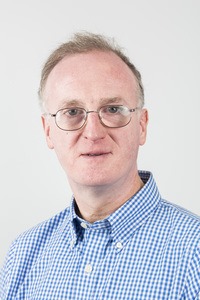
University of South Wales
In a world where artificial intelligence is transforming everything from gaming to healthcare, understanding how we learn from data has never been more exciting! This talk invites you to dive into the fascinating world of AI and explore how it uses data to learn, adapt, and make decisions. We’ll break down the basics of machine learning in a fun and relatable way, showing how algorithms analyse patterns and improve over time. Through real-world examples, you’ll see how AI is revolutionizing industries and creating new opportunities for innovation. We’ll also discuss the ethical implications of AI and the importance of using data responsibly. By the end, you’ll be inspired to think critically about technology and discover how you can shape the future through data and AI!
Andrew is Professor of Computing at the University of South Wales in the United Kingdom. His research interest centre on the use of intelligent computer systems (Artificial Intelligence and Data Science oriented solutions) to help solve real-world problems. Andrew is currently working on AI-related projects with several industrial and commercial partners that include Tata Steel, National Health Service Wales Informatics Service, and Wye Education. Andrew is also Director of Aurora International Consulting Ltd, an innovative software-as-a-service company that provides AI-enabled review software to the construction industry. Andrew is Director of Research for the Welsh Institute of Digital Information, a collaboration between the University of South Wales, the University of Wales Trinity Saint David, and the NHS Wales Informatics Service (NWIS). Andrew is a Regional Director of Techno Camps, an innovative and ambitious project that seeks to engage young people with computing and its cognate subjects. Moreover, Andrew is Editor in Chief of the journal Annals of Emerging Technologies in Computing (AETiC). Professor Ware teaches various computing courses including artificial intelligence, data mining and computer programming. Moreover, Andrew has successfully supervised nearly forty PhD students and has been an active participant in several international research and teaching projects.

National University of Computer & Emerging Sciences (NUCES) FAST Lahore campus
Environmental Intelligence is the integration of environmental and sustainability research with data science, artificial intelligence, and cutting-edge digital technologies to provide organizations with the meaningful insight required to address the challenges associated with sustainability / environmental issues such as climate change and global economy etc. Environmental data is a classic example of an application that benefits greatly from a data science approach, as it consists of continually expanding collections of data from automated sensors in space and time domains. Data science applied to environmental science research is known as environmental data science. Data science is the nexus of mathematics, statistics, computer science/IT. Environmental Data Intelligence (EDI) plays a pivotal role in advancing sustainability by leveraging the power of data driven insights to address complex environmental challenges. This a strong need of exploring the integration of big data, artificial intelligence (AI), and machine learning (ML) in environmental monitoring, resource management, and decision-making processes. EDI offers real-time analysis and predictive modeling, enabling stakeholders to optimize resource utilization, reduce environmental impact, and foster resilience against climate change. Environmental datasets are always developing and include a massive number of potential data sources. By focusing on various sectors—such as energy, agriculture, and urban planning—EDI can drive policy innovation, enhance sustainable practices, and promote a deeper understanding of ecological systems. EDI will explore the use of IoT, sensors, remote sensing and satellite images to monitor environment. Ultimately, EDI emerges as a critical tool in creating a more sustainable future by aligning technology with environmental stewardship.
Prof. Dr. Saman Shahid deals with the teaching of Physics and Environmental Sciences to Engineering and Computer Science undergraduate and graduate students of National University of Computer & Emerging Sciences (NUCES), FAST Lahore Campus Pakistan. She has completed her doctoral studies in Environmental Sciences from the College of Earth & Environmental Sciences (CEES), University of the Punjab, Lahore. She is a Director of the Environment & Health Data Science (EH-DS) Research Laboratory. The following are the main objectives of her research lab: (i) AI health-specific goals: precision medicine, disease diagnosis, treatment & prognosis, clinical decision support for physicians, public health management, and digital health platforms;(ii) data sciences for environment & sustainability: risk assessment, environmental monitoring, climate change modeling, water management, natural hazards, and air pollution. She offers summer internships to the undergraduate students through the research lab. She has published 104 research articles in national & international journals. She has also published 40 abstracts at different national and international conferences. Her current impact factor is 129. Her areas of interest are related to Artificial Intelligence (AI) in Medicine & Environment.
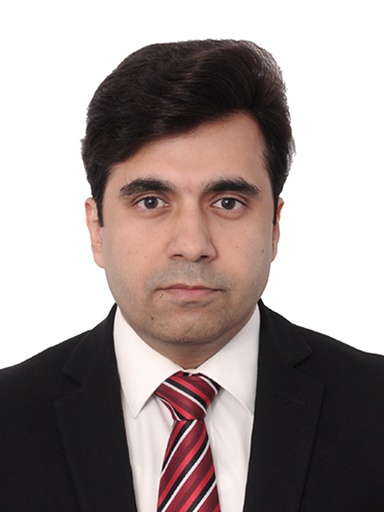
Chairman and Central Project Director of Pakistan National Center of Artificial Intelligence (NCAI), Pakistan
TBD
Prof Dr Yasar Ayaz is the Founding Chairman and Central Project Director of Pakistan National Center of Artificial Intelligence (NCAI) headquartered at National University of Sciences and Technology (NUST) in Islamabad. He also founded Pakistan first Department of Robotics & Artificial Intelligence at NUST in 2010 where he is also currently a full Professor. He holds international Adjunct Professor titles at Tohoku University, Japan and China University of Mining and Technology, Beijing. He is the author of over 150 international publications and has won international best paper awards in London, UK and Sydney, Australia in 2018 and 2013 respectively. He also has 3 product design patents registered in his name with several more under review. He has delivered more than 60 invited and keynote talks at prominent venues including USA, Japan, UK, South Korea, China, Italy, Belarus, Norway etc and has won and developed projects of well over Two Billion Pakistan Rupees including international grants and national consortium based projects. In addition to winning President Gold Medal, University Best Teacher Award and SMME Best Researcher Award and university Top Performer award at NUST, Prof Yasar has also won Pakistan Engineering Council (PEC) Engineers Excellence Award. He has been awarded Lifetime Achievement Award by IEEE Islamabad Section and is also a recipient of President Award for Pride of Performance which is one of the highest Civil Awards of Pakistan conferred by the Honorable President of Pakistan himself in 2021.

Queen Mary University of London
The Internet of Things (IoT) is vital in world because it enables seamless communication between devices, leading to increased efficiency, automation, and innovation across various industries. IoT allows for real-time data collection and analysis, which can improve decision-making, reduce costs, and enhance user experiences. In healthcare, IoT devices can monitor patient conditions remotely, while in manufacturing, they can optimize production processes. As IoT continues to evolve, its impact on smart cities, agriculture, and daily life will only grow, making it a cornerstone of future technological advancements. This workshop will provide the participants with a hands-on experience on how to create connectivity between electronic devices and how to gather data from sensors and log that data on a remote server via internet connectivity.
Stefan Poslad leads the IoT2US (Internet of Things to Ubiquitous, Computer, Science) Lab at Queen Mary University of London, where he is a fellow of the Digital Environment Research Institute (DERI), and Cognitive Science research group. He is regarded by Stanford University as being in the top 2% of scientists worldwide. His current research and innovation focus is AI-driven, data science-driven and geoscience-driven models, to enhance how we physically sense and analyse human location and motion behaviour shifts, and physical environment changes, both outdoors and indoors. He has been the lead researcher for QMUL in over 15 international collaborative projects with industry. He is the sole author of a leading book on Ubiquitous Computing: Smart Devices, Environments and Interaction that has over 1000 research citations that is in use for teaching by over 70 institutes worldwide, across 6 continents.
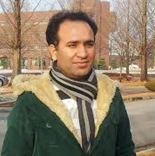
Quaid-i-Azam University, Islamabad
Deep learning is widely used in numerous applications ranging from speech recognition, natural language understanding and computer vision etc. No single algorithm paradigm has even been so broadly and successfully used as deep nets. Invited talk will focus on history of deep learning, its applications and research trends.
Ayyaz Hussain is currently working as Professor of Computer Science at Quaid-i-Azam University Islamabad. From 2010 to 2020 he was Associate Professor and Chair of the Department of Computer Science & Software Engineering at International Islamic University Islamabad. He worked as Research Professor at Gwangju Institute of Science and Technology South Korea from 2013-2014. During 2000 to 2010 he served as Software Engineer at National Engineering and Scientific Commission. Dr. Hussain received his PhD from National University of Computer and Emerging Sciences (NUCES-FAST) in 2009. His research interests include Image processing, computer vision, machine learning and deep learning. He has published more than 40 journal articles along with number of conference papers. He has supervised more than 10 PhD and 25 MS students.
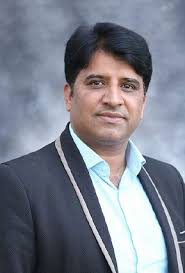
Superior University, Lahore
TBD
TBD
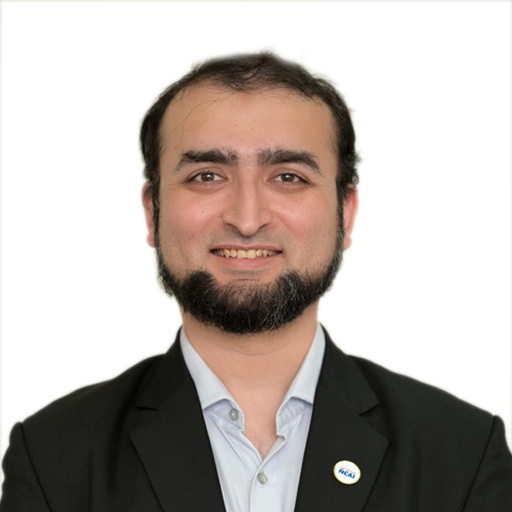
National University of Sciences and Technology (NUST), Islamabad
TBD
Dr. Khawaja Fahad Iqbal is an Assistant Professor at the Department of Robotics and Artificial Intelligence at the National University of Sciences and Technology (NUST). He is also serving as the Co-Principal Investigator for the Intelligent Robotics Lab at the National Centre of Artificial Intelligence (NCAI). He has been entrusted with the responsibilities of being a Treasurer for IEEE Robotics and Automation Society, Pakistan, and Finance Secretary of MEXT Alumni Association of Pakistan (MAAP) for 2024-25. Dr. Fahad is the founding CEO of Rise AI Pvt. Ltd. which is a spin-off of NUST registered with the National Science and Technology Park (NSTP). It provides consultancy and training to the traditional institutes, local industries, and SMEs and helps them automate their products and services Dr. Fahad obtained his PhD degree in Robotics in 2022 and MS degree in Bioengineering and Robotics degrees in 2017 from Tohoku University, Japan. He received the Japanese Government (MEXT) scholarship for both his MS and PhD. He completed his BE degree in Mechatronics Engineering from NUST in 2011. He has authored over 25 research papers in well-reputed international journals and peer-reviewed conferences. His research interests include Collaborative Robots, Motion Planning, Reinforcement Learning, Generative AI, Augmented Reality, and Robot Control.
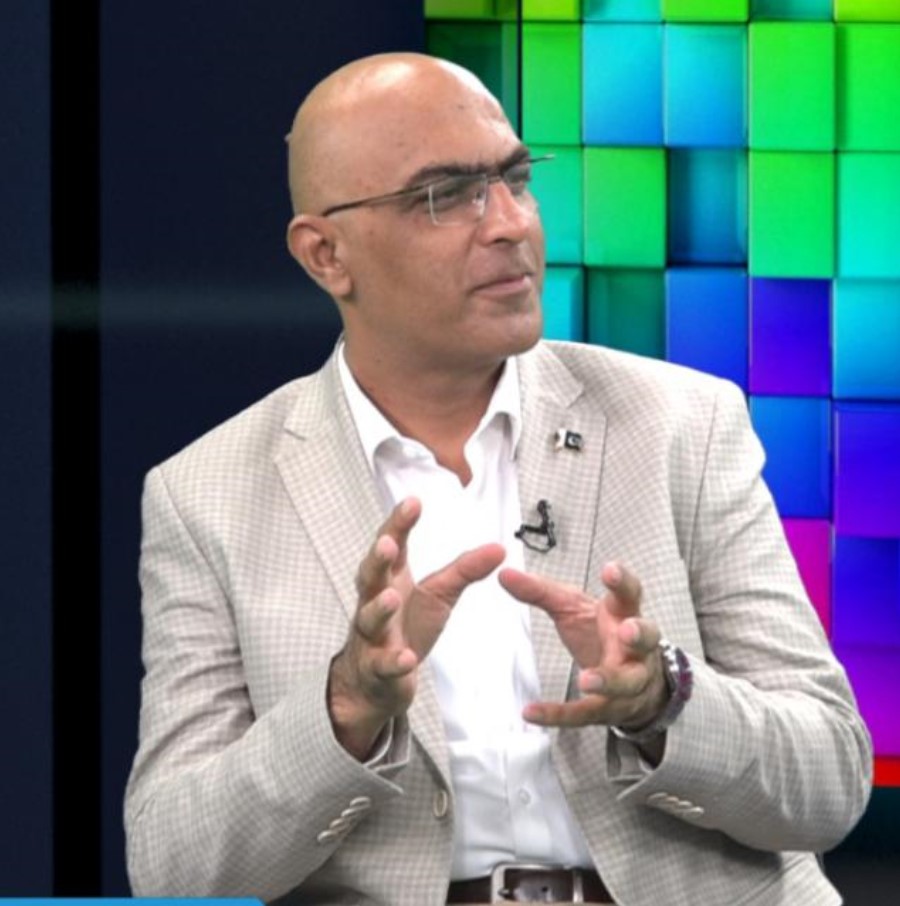
COMSATS University Islamabad, Lahore Campus
TBD
Dr. Wajahat Qazi is a distinguished AI and robotics expert, currently serving as an Assistant Professor and In-charge of the BS (AI) Program at COMSATS University Islamabad, Lahore Campus. Alongside his academic role, he contributes significantly to industry advancements as a Consultant in Computer Vision at Services Syndicate Pvt Ltd and in AI & Robotics at Arctan Engineering Solutions Pvt Ltd. Dr. Qazi is the Founding Vice Chair of the IEEE Robotics and Automation Society Joint Section Chapter, showcasing his leadership in fostering collaboration within the robotics community. His expertise extends to advising on intelligent machines and robotics, bridging the gap between academia and industry. With a passion for shaping the future of AI, Dr. Wajahat Qazi continues to inspire and contribute to the transformative potential of artificial intelligence.
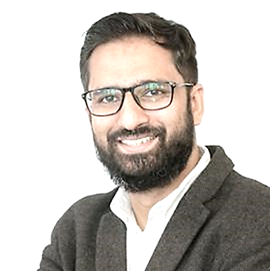
Information Technology University of the Punjab (ITU), Lahore
The upcoming workshop is designed to introduce the fundamentals of Remote Sensing and is expected to attract significant interest from both students and parents. With around 40 participants anticipated, the event will cover essential topics such as the basic components of satellites, their launching mechanisms, and the interpretation of remote sensing imagery. The session will include hands-on exercises using "Google Earth Pro" software, allowing participants to explore locations of interest, making the experience more engaging. Additionally, an exciting activity is planned for children, where they will identify alphabets in remote sensing imagery provided by NASA, ensuring the event is both educational and interactive.
Dr. Muhammad Adnan Siddique is currently an Assistant Professor & Director of the Remote Sensing & Spatial Analytics Lab, at Information Technology University of the Punjab (ITU), Lahore, Pakistan. His research generally revolves around signal processing and machine learning for various geoscience applications, such as monitoring land surface deformation using space-borne radar imaging, observing glacier dynamics with active or passive sensors, detection of marine pollution, etc. He is assimilating pattern recognition & learning inspired approaches with traditional remote sensing. He also works in geospatial analytics. Dr. Siddique received the B.E. degree in electronics engineering from the National University of Sciences and Technology (NUST), Pakistan in 2006. He obtained the European Master of Research in Information and Communications Technology (MERIT) joint degree from Karlsruhe Institute of Technology (KIT), Germany and Universitat Politecnica de Cataluyna (UPC), Spain, in 2010. He did doctorate/post-doc at the Chair of Earth Observation & Remote Sensing, Swiss Federal Institute of Technology, ETH Zurich, Switzerland, from 2013 – 2018. Thereafter, he joined the National University of Computer and Emerging Sciences (NUCES) in 2019, and spent two semesters there as an Assistant Professor before moving to ITU in June 2020. In the long run, his aim is to contribute towards environmental protection by enabling the right technology-based interventions!
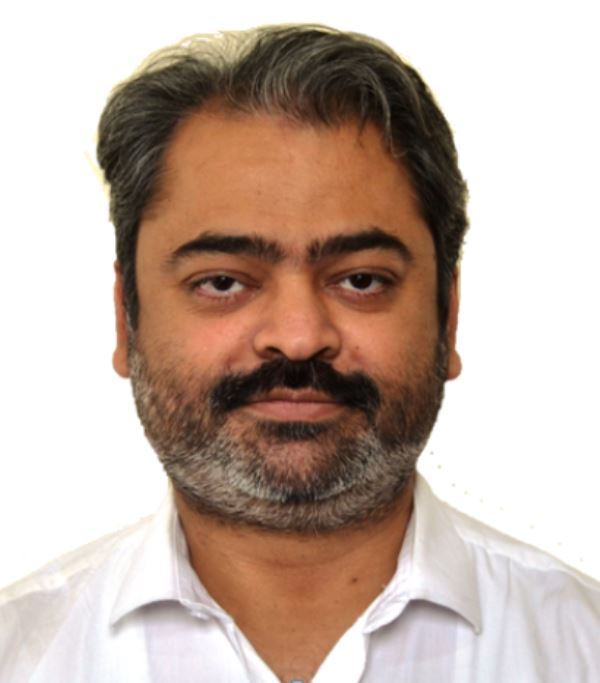
Punjab University College of Information Technology (PUCIT), Lahore
TBD
Dr. Jaffry started his career as a Lecturer at the University of Punjab and is elevated to a Full Professor. He has been associated with the Punjab University College of Information Technology (PUCIT), Lahore, Pakistan, since 2000. He is currently serving as the Chairman Department of Information Technology and the Director of the National Centre of Artificial Intelligence (NCAI), University of the Punjab, Lahore. At the NCAI, he supervises AI-based research and product development for the global good. Over the last couple of years, he secured research funding of more than a hundred million Pakistani rupees as a Principal Investigator (PI). He has published more than 75 research Policy Drafts, Books, Book Chapters, and articles in peer-reviewed Journals and International Conferences. He also served in various academic and administrative positions, designed and taught dozens of computing courses at the undergraduate and graduate levels, and supervised hundreds of students in their capstone projects and research theses. Dr. Jaffry served at national and international levels to raise the standard of education, research, and development of computer science and information technology. Being the official evaluator for the National ICTRnD fund and Higher Education Commission (HEC) of Pakistan, he has reviewed several competitive research and development proposals. Currently, he is serving as the Chair of Punjab ACM Chapter, and Conferences Committee IEEE Lahore Section. In K-12 education, he is the Convener of the External Review Committee for Computer Science and Information Technology Textbooks and the Convener of Review Committee for the Review of Curriculum of Computer Science and Information Technology for Grades VI-XII at Punjab Curriculum and Textbook Board (PCTB), Lahore.
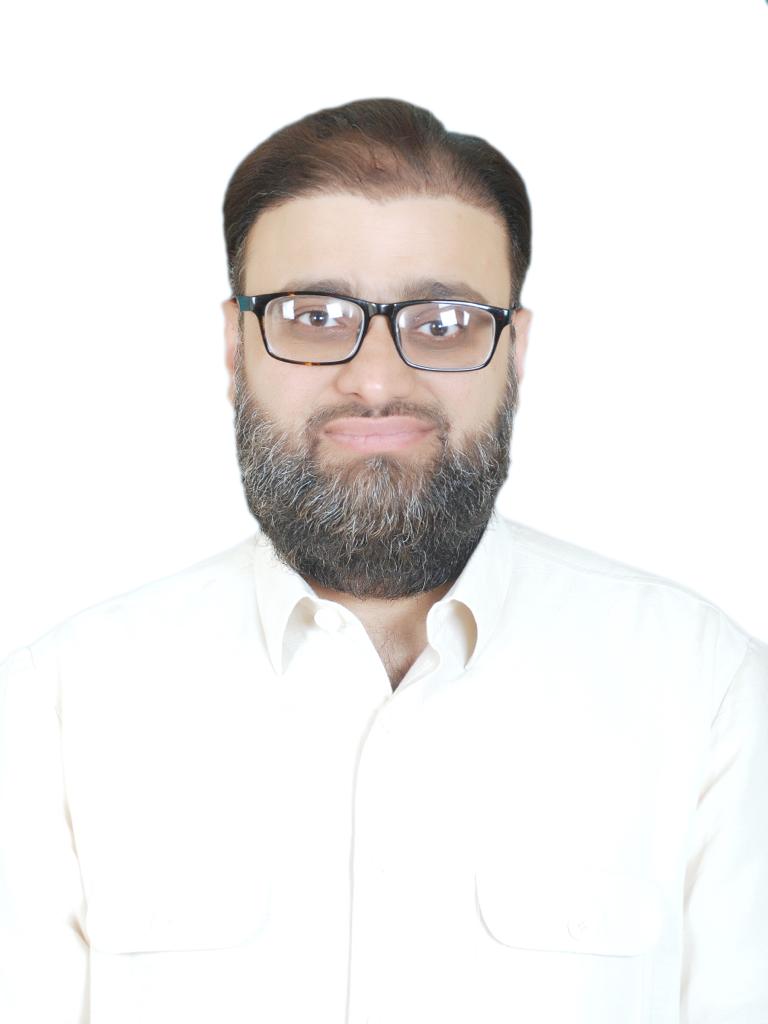
Allama Iqbal Medical College, Lahore
TBD
Dr. Amjad Zafar holds a Fellowship in Medical Oncology from Pakistan and has received specialized training in Bone Marrow Transplantation from Germany. He is currently working as a Community Oncologist in Lahore, Pakistan. He holds the position of Assistant Professor at Jinnah Hospital, Lahore, and serves as a visiting consultant at several hospitals, including PKLI and Hameed Latif. Dr. Zafar has numerous publications at both national and international levels, with specific research interests in Hepatocellular Carcinoma (HCC), Gastrointestinal (GI) Oncology, Breast Cancer, and Leukemia/Lymphomas.
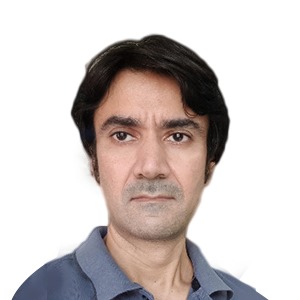
University of Central Punjab, Lahore
The Internet of Things (IoT) is vital in world because it enables seamless communication between devices, leading to increased efficiency, automation, and innovation across various industries. IoT allows for real-time data collection and analysis, which can improve decision-making, reduce costs, and enhance user experiences. In healthcare, IoT devices can monitor patient conditions remotely, while in manufacturing, they can optimize production processes. As IoT continues to evolve, its impact on smart cities, agriculture, and daily life will only grow, making it a cornerstone of future technological advancements. This workshop will provide the participants with a hands-on experience on how to create connectivity between electronic devices and how to gather data from sensors and log that data on a remote server via internet connectivity.
Dr Fesal Toosy has more than 20 years of experience in Electrical Engineering Academia, his current research interests are Internet of Things (IoT) Internet of Behaviours (IoB), Audio Engineering, Engineering Education and Digital Image Processing. He has a Bachelors, Masters and PhD degree in Electrical Engineering. He is currently the Head of Department, Electrical Engineering at the University of Central Punjab.
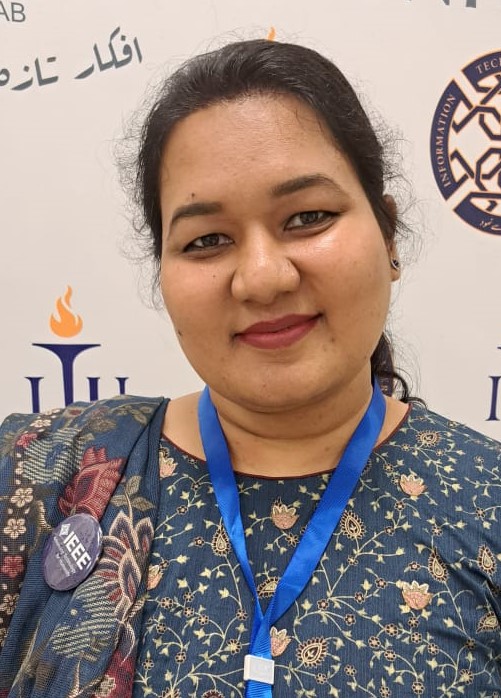
Forman Christian College (A Chartered University), Lahore
TBD
15 years of teaching cybersecurity at recognized HEIs including GC University Lahore, Kinnaird College for Women University, Bahauddin Zakariya University Multan and Forman Christian College (A Chartered University). She is a PhD scholar and avid researcher in the field of Cybersecurity and AI, having high impact factor journal as well as reputed national and International conference publications. Ms. Asma is also an HEC certified Master Trainer with advanced training from Asian Institute of Technology, Thailand. She is currently serving as the IEEE WIE Lahore General Secretary and IEEE SIGHT Lahore Chair. Ms. Asma is also the co-founder for Women in STEM Pakistan, and actively contributes towards the empowerment of Women in the field of technology and engineering.
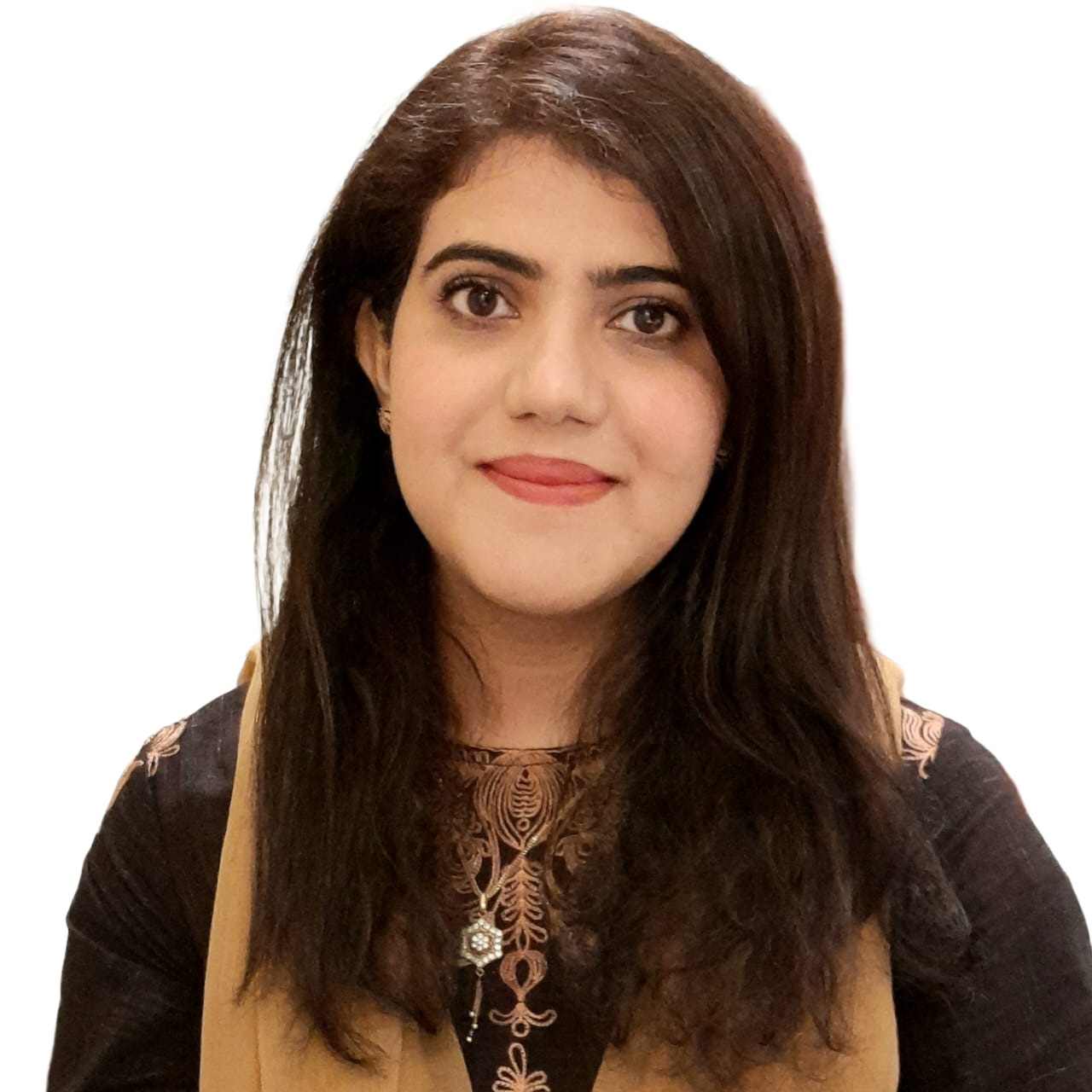
University of Central Punjab, Lahore
TBD
Ifra Ayesha, lecturer at the University of Central Punjab (UCP), is a highly motivated professional with a background in Mechatronics Engineering. She holds a B.Sc. from the National University of Sciences and Technology (NUST) and an M.Sc. from the University of Engineering and Technology, Lahore, where she was awarded a fellowship to serve as a graduate assistant while conducting research. With 6 years of teaching and research experience at Bahria University Lahore, UET Lahore, and Islamia University Bahawalpur, her expertise spans Robotics, Programming and Algorithms, Mathematics, Modelling and Simulation, Electronics, Control Theory, and Logic Designing. Proficient in Matlab, LabVIEW, programming, and Industrial Automation, Ifra is recognized for her academic excellence, including a Gold Medal. Ifra is passionate about helping students develop both theoretical knowledge with practical skills, she remains dedicated to advancing education and innovation.
Superior University, Lahore
TBD
Muhammad Awais Mahboob has earned his Bachelor of Science (BS) in Electrical Engineering from the Lahore University of Management Sciences (LUMS), where he developed a strong foundation in robotics engineering, programming, and artificial intelligence. His innovative projects during this time highlighted his passion for integrating technology with practical applications. Awais continued his education with a Master’s degree from the National University of Sciences and Technology (NUST), focusing on advanced robotics systems, machine learning algorithms, and autonomous navigation. His thesis addressed key challenges in robotic perception and decision-making. For the past two years, Awais has been teaching robotics at Superior University, where he has inspired students with his engaging teaching style and practical approach to learning. He is dedicated to empowering underprivileged youth and girls in Pakistan through technology education, actively conducting workshops that promote skills in robotics and STEM fields. His research and projects have garnered recognition at various conferences, and he advocates for the integration of robotics in addressing societal challenges. Awais envisions leveraging technology to create impact solutions that enhance quality of life and promote inclusive within the tech industry.
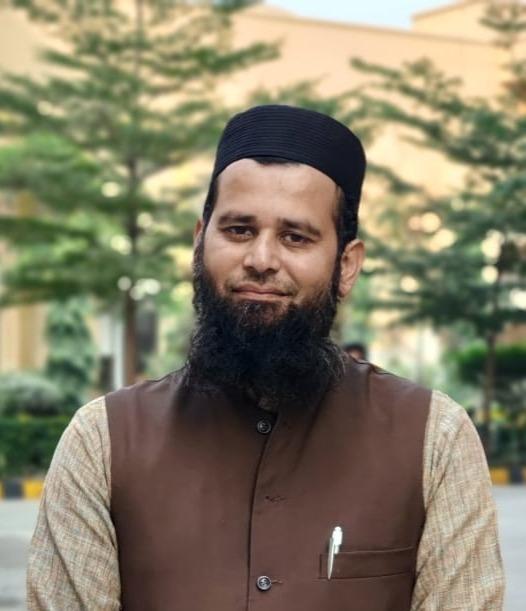
UMT, Lahore
TBD
Mr Babar has a robust background in both academic and corporate environments. In his current position at the University of Management and Technology, he has honed his teaching skills while engaging with students from diverse backgrounds. Previously, at the University of South Asia, he developed strong research and analytical abilities. Additionally, his experience at Pakistan Telecommunication Company Limited provided him with a solid foundation in network operations and management.
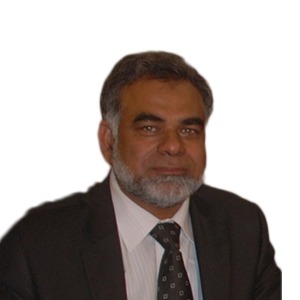
University of Central , Lahore
The Internet of Things (IoT) is vital in world because it enables seamless communication between devices, leading to increased efficiency, automation, and innovation across various industries. IoT allows for real-time data collection and analysis, which can improve decision-making, reduce costs, and enhance user experiences. In healthcare, IoT devices can monitor patient conditions remotely, while in manufacturing, they can optimize production processes. As IoT continues to evolve, its impact on smart cities, agriculture, and daily life will only grow, making it a cornerstone of future technological advancements. This workshop will provide the participants with a hands-on experience on how to create connectivity between electronic devices and how to gather data from sensors and log that data on a remote server via internet connectivity.
Jalil Asghar Mirza, Assistant Professor, Faculty of Engineering has more than 30 years of experience in the Electronics and Telecom industry, along with 10 years of experience as a university teacher. He has a Bachelors Degree in Electrical Engineering and a Masters Degree in Computer Engineering from UET Lahore. His current area of research is Internet of Things (IoT), Building Power Management, Home Automation and Satellite Communications.

University of Central , Lahore
TBD
Jawad Khalid Qureshi is a seasoned electrical engineer, educator, and consultant with a strong background in embedded systems and machine learning. He holds an MS in Electrical Engineering from the University of Central Punjab and has extensive experience in both academia and industry. Currently a Senior Lecturer at the University of Central Punjab, Jawad has been teaching a variety of technical courses such as Microcontroller-based Design, Computer Communication & Networks, and Data Structures & Algorithms. His academic interests are complemented by practical expertise in embedded systems, where he has worked on projects involving Arduino, STM32 Cortex M3 boards, and various communication protocols like UART, I2C, and Ethernet. Beyond teaching, Jawad has been involved in supervising final-year projects, developing labs, and leading robotics workshops. His research focuses on designing optimal and nonlinear controllers for robotic platforms, and he has supervised numerous undergraduate projects, including robotic arms and autonomous systems. He has also been recognized for his work in machine learning and intelligent systems, collaborating with organizations like NAVTTC to upskill students in Python programming and model training. Jawad has a passion for innovation and problem-solving, which has driven him to pursue multiple engineering projects. Notable ones include implementing cruise control for motorbikes, creating a mind-controlled prosthetic arm, and developing a gesture-controlled robotic arm funded by the Ignite program. With a strong commitment to advancing technology and education, Jawad Khalid Qureshi continues to contribute to both the academic and professional worlds through his projects, teaching, and mentorship.
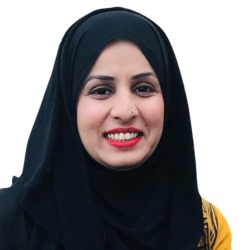
University of Central Punjab, Lahore
TBD
Rabia Arshad received her BSc. degree in Computer Engineering from University of Engineering and Technology, Lahore, in 2010 and MS degree in Electrical Engineering from The University of Lahore, in 2016. She is pursuing the Ph.D. degree at the Electrical Engineering with a specialization in wireless communication, from COMSATS University, Lahore. She worked as a lecturer at the department of Electrical Engineering, The University of Lahore from 2010 to 2018 followed by Assistant Professor at the same department from 2018 to 2022. Currently, she is serving University of Central Punjab as Senior Lecturer at the Computer Science Department. Miss Rabia is currently a student member of IEEE society. Her research interests include signal processing, orthogonal and non-orthogonal multiple access (NOMA) techniques in 5G wireless communication networks.
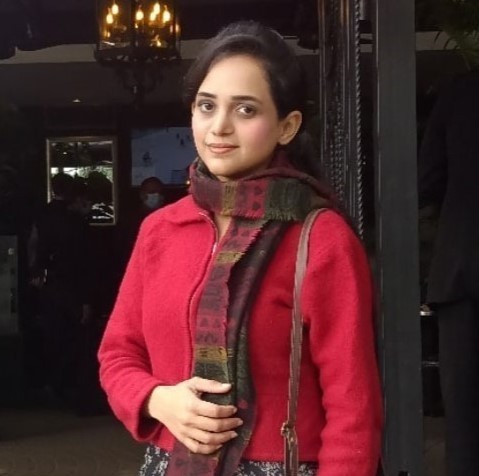
Team Lead (Unity), NCAI -PU
TBD
TBD
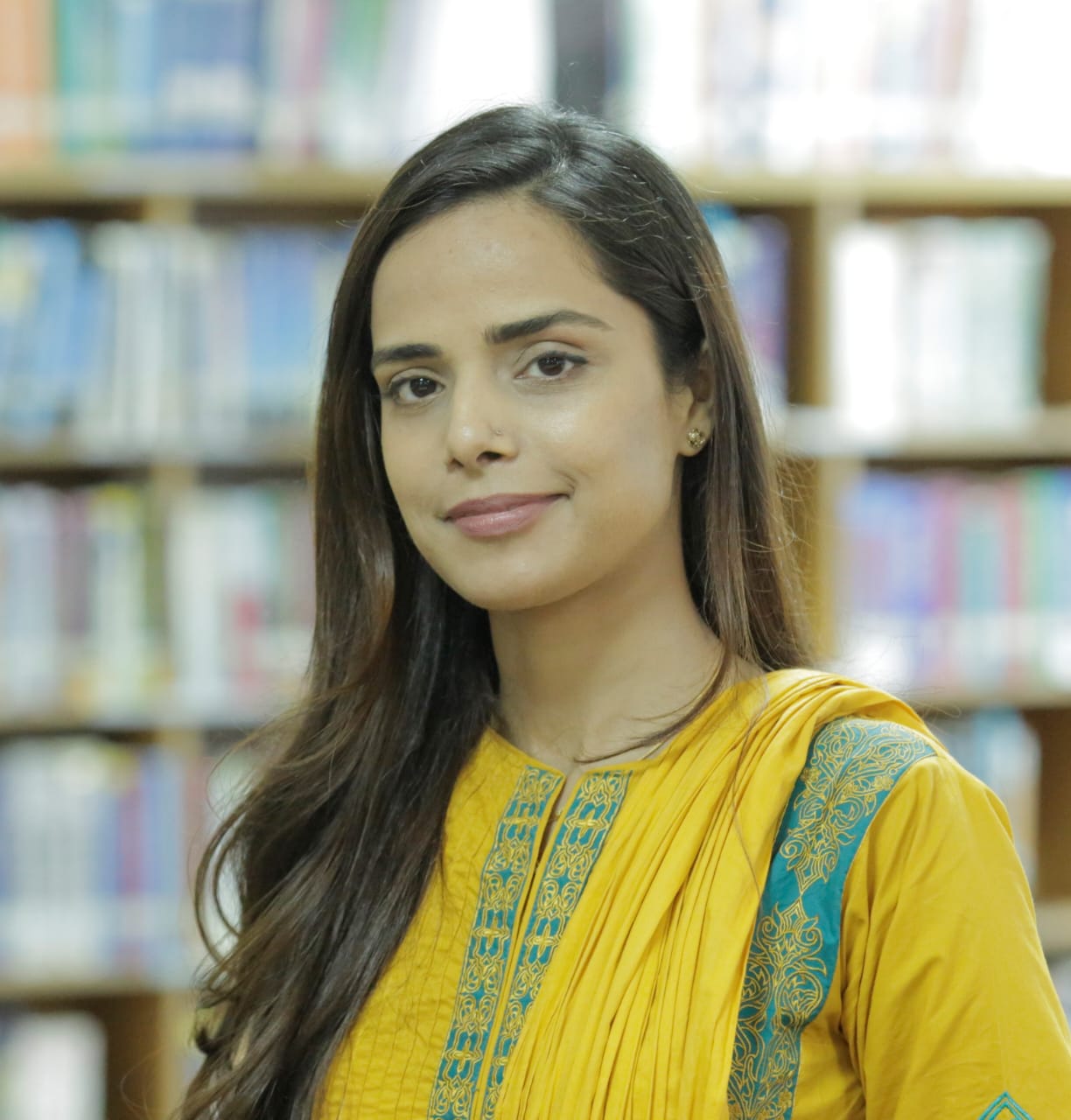
ITU, Lahore, Pakistan
The upcoming workshop is designed to introduce the fundamentals of Remote Sensing and is expected to attract significant interest from both students and parents. With around 40 participants anticipated, the event will cover essential topics such as the basic components of satellites, their launching mechanisms, and the interpretation of remote sensing imagery. The session will include hands-on exercises using "Google Earth Pro" software, allowing participants to explore locations of interest, making the experience more engaging. Additionally, an exciting activity is planned for children, where they will identify alphabets in remote sensing imagery provided by NASA, ensuring the event is both educational and interactive.
Maleeha Sattar is a Teaching Fellow at the Department of Governance and Global Studies, ITU. Her recent research projects relate to mapping and evaluating polycentric climate governance, collective climate actions and discursive analysis of social policies She is also serving as Societal Engagement and Impacts Coordinator (SIC) for IEEE GRSS Lahore chapter.
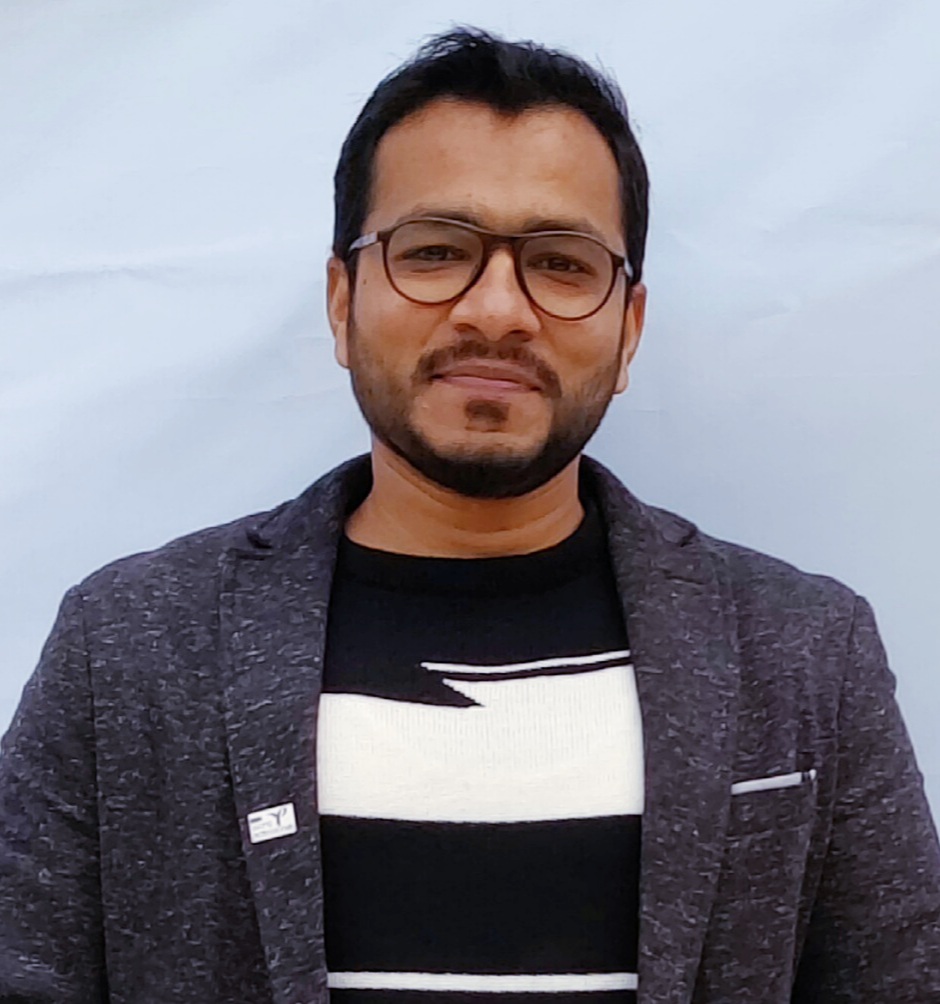
Information Technology University of the Punjab, Lahore
The upcoming workshop is designed to introduce the fundamentals of Remote Sensing and is expected to attract significant interest from both students and parents. With around 40 participants anticipated, the event will cover essential topics such as the basic components of satellites, their launching mechanisms, and the interpretation of remote sensing imagery. The session will include hands-on exercises using "Google Earth Pro" software, allowing participants to explore locations of interest, making the experience more engaging. Additionally, an exciting activity is planned for children, where they will identify alphabets in remote sensing imagery provided by NASA, ensuring the event is both educational and interactive.
Ehtasham Naseer, is currently a Swiss National Science Foundation (SNSF) PhD fellow at Remote Sensing and Spatial Analytics (RSA) Lab, Information Technology University of the Punjab Lahore. His area of interest revolves around landslide monitoring using remote sensing and machine learning. He won national Clean-Tech innovation challenge 2022 award for his work on air quality monitoring using remote sensing data and machine learning. He is also serving as general secretary of IEEE Geoscience and Remote Sensing Society (GRSS) Lahore Chapter.
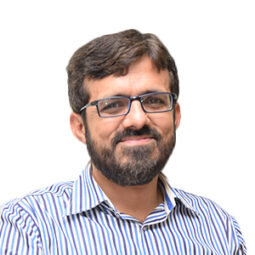
University of Central Punjab, Lahore
TBD
Kamran Shabbir has a 10 years’ career in teaching related to university programs, especially in Computer Science domain. He has keen interest toward the theoretical side of computer science and mostly he teaches Algorithm analysis and design, Theory of automata, Problem solving skills, Problem analysis, Basic Programming techniques and Discrete structures. On the other side he is interested in developing the soft side of the student, so after the degree student is ready to face the real challenges of life. He has been involved with the development of students from his stay at LUMS as a student and playing his role in student council. He has done BS from Virtual university, that has taught him the art of self-learning and checking rechecking his own work with the eye of the student and of the evaluator on the same time. After that he joined LUMS to get a MS degree in CS domain where alongside his technical knowledge development, he has learnt a lot towards the practical side of the student’s life. He is an advocate that a parallel student development system should be designed and came into play for the students, who are doing their BS program. He Has joined UOL after his MS for one and a half year, then take a break for six months and joined UCP from 2012 in FOIT and taken many students related initiatives that are producing results.
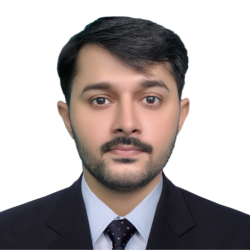
University of Central Punjab, Lahore
TBD
Hassan Jahangir, has 5 years of experience in industry and academia. He holds MS in Computer Science from NFC- Institute of Engineering and Technology, Multan, and BS in Software Engineering from COMSATS University Islamabad. His research interests encompass the fields of Bio-Informatics, Artificial Intelligence, and Machine Learning.


